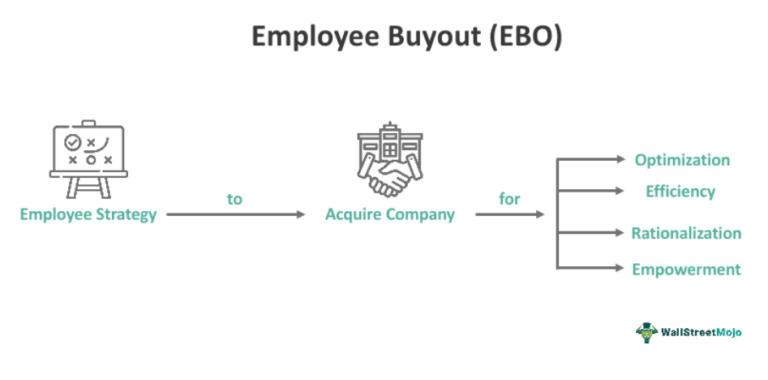
Audience
- Sentiment: neutral
- Political Group: conservative
- Age Group: 35-54
- Gender: male
Overview
- Elliott Investment Management’s substantial investment has triggered a significant surge in BP’s stock price.
- BP faces challenges in balancing its focus between fossil fuels and renewable energy initiatives amidst leadership changes.
- The upcoming strategy update from BP is crucial, as it will determine the company’s future direction in the energy sector.
BP’s Big Shake-Up: What Elliott’s Investment Could Mean for the Future
In the fast-paced and often unpredictable world of business, big moves by influential investors can send waves throughout the market. Recently, the British oil giant BP Plc experienced a remarkable surge in its stock price—its largest leap since 2020—thanks to a substantial investment by activist investor Elliott Investment Management. If you’re wondering what all this means and why it matters, you’re in the right place. So, let’s dive into the exciting details of this story and explore how it might shape BP’s future!
Who is Elliott Investment Management?
To put it simply, Elliott Investment Management is a company led by Paul Singer, a well-known figure in the investment world. What sets Elliott apart from other investors is its activist approach. Essentially, this means that rather than just buying shares and sitting back, Elliott gets involved in the companies it invests in to push for changes that will boost the company’s performance and, in turn, create more value for shareholders. Think of them like a coach for a sports team, pushing for better plays and strategies to ensure the team wins.
When they invest, they often look to shake things up—sometimes changing leadership, restructuring the company, or even urging management to sell off certain parts of the business that aren’t performing well. So, when Elliott acquired a significant stake in BP, the market took notice. Everyone began to wonder what changes might be on the horizon as a result.
BP’s Rollercoaster Ride
Now, let’s talk a bit about BP’s recent history. This company is one of the largest oil producers in the world, but it hasn’t had the smoothest ride. One of the most infamous episodes in its history was the Deepwater Horizon disaster in 2010. This oil spill became one of the worst environmental disasters ever, severely damaging BP’s reputation and leading to countless lawsuits and fines. That incident was a major wake-up call for the entire oil industry, highlighting risks associated with offshore drilling and environmental management.
More recently, BP faced internal challenges, including the unexpected dismissal of its CEO, Bernard Looney. Looney was seen as a leader trying to move BP towards a more sustainable and low-carbon future, which is essential in today’s environmental landscape. However, his departure sent shockwaves through the company—people were left asking what this meant for BP’s direction moving forward.
Why Did BP’s Stock Price Surge?
When the news broke about Elliott buying a large stake in BP, the company’s shares skyrocketed, jumping by as much as 8.2% to reach 461.7 pence. This sharp increase is a clear indication that investors are optimistic about the changes Elliott might propose. It reflects a common sentiment in the market: investors like a good story, especially one that hints at transformation and improvement.
So, what does this mean for everyday investors, and why should we care? Well, when a powerful investor like Elliott gets involved, it often leads to significant changes in a company’s strategy. BP has been facing performance issues, lagging behind rivals like Shell and TotalEnergies in the competitive oil market. By stepping in, Elliott may very well push BP to rethink its entire operational strategy, diving back into its strengths in oil and gas production.
A Shift Back to Fossil Fuels?
Elliott’s strategy might involve urging BP to refocus on its core business of oil and gas extraction, which has been the backbone of the company for decades. In recent years, BP attempted to pivot towards renewable energy and low-carbon strategies, seeking to position itself as a leader in the fight against climate change. While this is a commendable goal, it comes with its own set of challenges, especially in a market where fossil fuels still dominate.
With Elliott’s involvement, analysts believe that we might see a push to sell off some of BP’s low-carbon assets. This could mean less emphasis on renewable projects and more investment in traditional oil and gas operations. Whether this approach is ideal is subject to debate, but what’s clear is that Elliott’s presence could shift BP’s priorities, potentially sacrificing its green goals for immediate financial gains.
New Leadership on the Horizon?
Currently, BP is navigating a transition phase, especially with Murray Auchincloss taking the helm as CEO following Looney’s ousting. Auchincloss, who previously served as the CFO, is now tasked with steering the company through this turbulent time. However, with Elliott breathing down BP’s neck, there may be mounting pressure for him to deliver results quickly.
Analysts speculate that we could potentially see a push for new leadership as Elliott sets its sights on restructuring BP. In situations like this, it’s not uncommon for activist investors to advocate for a new CEO who can align more closely with the investor’s vision for the company. This could mean instigating changes that would lead to a sharper focus on profitability and cash flow generation—two elements that are crucial for attracting investors in the current market.
What’s Next for BP?
As BP prepares for a crucial strategy update later this month, stakeholders are eagerly anticipating how Elliott’s influence will reshape the company’s direction. For those who are curious and concerned about the future of oil and gas, as well as environmental impacts, this is a crucial moment. The decisions BP makes in the coming weeks could have significant implications, not just for the company itself, but for the energy sector as a whole.
If BP decides to double down on fossil fuels, it might provide short-term benefits in profits, but it could draw criticism from environmental advocates and consumers who are vigilant about climate change. Conversely, if the company chooses to stick to its green initiatives, it risks falling behind its competitors in the eyes of shareholders eager for returns.
Conclusion: The Energy Future in Flux
In the grand scheme of things, the story of BP and Elliott Investment Management is one of challenge, change, and potential opportunity. As we see these developments unfold, it raises important questions about the future of energy companies: Will they prioritize sustainable practices, or will they revert to traditional business models focused solely on profitability? This dynamic represents one of the central debates in today’s world of energy.
So, what do you think? Should BP focus on reviving its fossil fuel operations to boost profits, or should it stay the course with its renewable initiatives? I’m curious to hear your thoughts! Let me know in the comments below—let’s chat about it!





